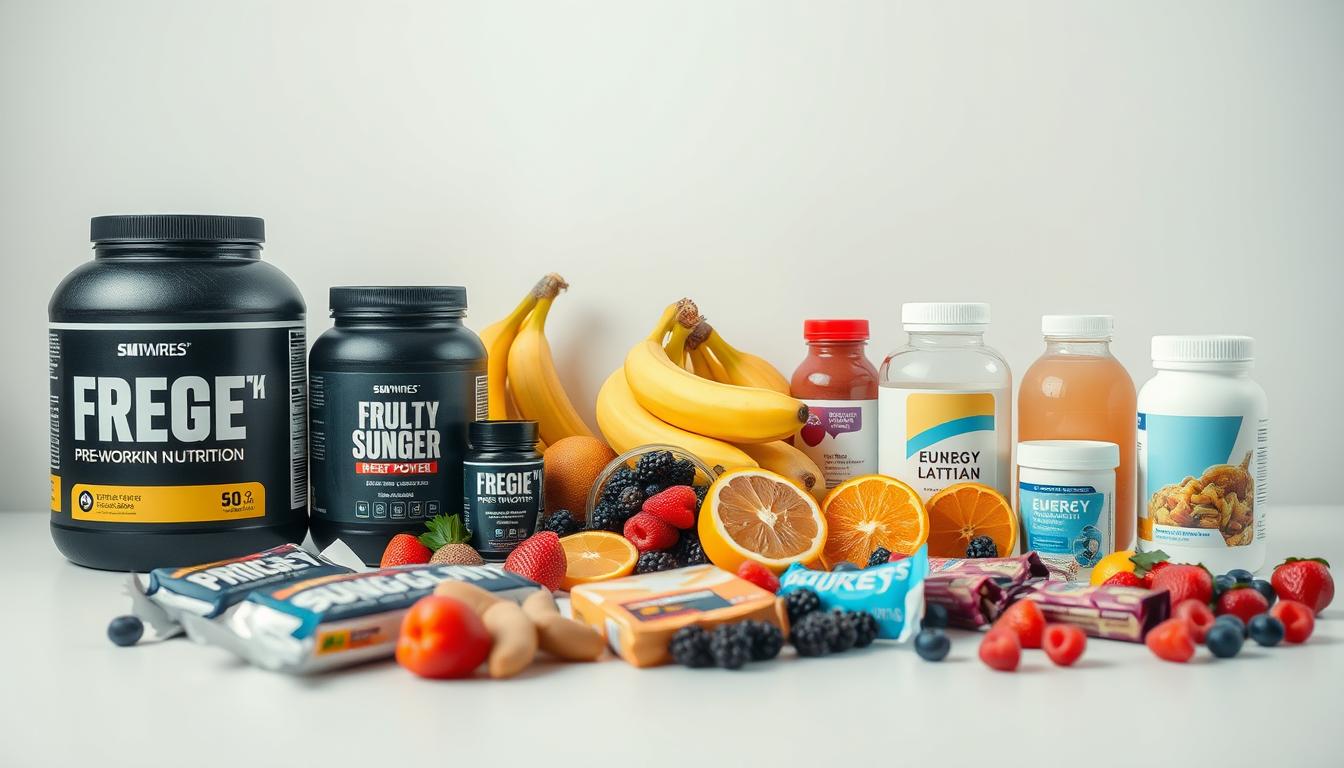Starting a weight loss journey can feel overwhelming. But, with the right strategies, you can reach your goals. It’s important to set realistic goals and choose a sustainable path. This means focusing on long-term lifestyle changes instead of quick fixes.
Sticking to your plan is easier when it’s based on proven weight loss methods. These methods promote a healthy lifestyle. Understanding the value of slow progress and patience helps you overcome challenges. This guide will give you the knowledge and tools to begin your journey.
Key Takeaways
- Set realistic weight loss expectations
- Adopt a sustainable approach to weight management
- Focus on long-term lifestyle changes
- Use proven strategies for successful weight loss
- Prioritize gradual progress and patience
Understanding Weight Loss: The Basics
Effective weight loss starts with knowing how weight changes happen. To lose weight successfully, you need to understand the key principles.
What is Weight Loss?
Weight loss means losing body weight. It happens through diet changes, more exercise, and lifestyle tweaks. It’s about burning more calories than you eat, creating a calorie deficit. This deficit uses fat for energy, leading to weight loss.
Many think weight loss is just about eating less or following a diet. But it’s more complex. It’s influenced by metabolism, genetics, and health.
How Does Weight Loss Work?
Weight loss involves many parts, both physical and mental. When you eat less or exercise more, your body uses stored energy. This reduces fat and can affect muscle and water weight.
| Factor | Influence on Weight Loss |
|---|---|
| Calorie Deficit | Directly impacts weight loss by forcing the body to use stored energy. |
| Metabolism | Affects how efficiently the body burns calories. |
| Physical Activity | Contributes to calorie expenditure and overall energy balance. |
Common Myths About Weight Loss
Many myths confuse people about weight loss. For example, believing certain foods or supplements can burn fat is wrong. As
“The key to weight loss is not in a specific food or supplement, but in a sustainable lifestyle change.”
Proven weight loss methods focus on balanced eating, regular exercise, and patience. Knowing and avoiding myths helps you make better choices for your weight loss goals.

Understanding the basics of weight loss, like calorie deficit and metabolism, helps you on your journey.
The Role of Nutrition in Weight Loss
The right food choices are key to losing weight. Nutrition is essential for losing and keeping off weight. It affects your body’s energy use and health.
Essential Nutrients for Weight Loss
A diet full of essential nutrients is vital for losing weight. You need proteins, healthy fats, and complex carbs. They give you energy and support your health.
Proteins help repair muscles and keep you full. Healthy fats, like those in avocados and nuts, support hormone production and satisfaction. Complex carbs, such as whole grains and veggies, offer lasting energy and fiber for better digestion and feeling full.

Meal Planning Strategies
Good meal planning is crucial for losing weight. It means making a diet plan that’s balanced and keeps calories low. First, figure out how many calories you need each day. Then, plan meals with foods that are full of nutrients.
Meal prepping can save time and help you stay on track. Cooking healthy meals ahead of time stops you from making unhealthy choices at the last minute.
- Plan meals around fresh, seasonal produce for variety and freshness.
- Make sure each meal has a mix of proteins, healthy fats, and complex carbs.
- Stay away from processed and high-calorie foods that can slow down weight loss.
Healthy Snack Options
Choosing healthy snack options is important for a balanced diet and weight loss. Pick snacks that are full of nutrients but low in calories. Good choices include fruits, nuts, and carrot sticks with hummus.
Avoid snacks with lots of sugar and unhealthy fats. They can cause weight gain and health problems. Instead, choose whole foods that are nutritious and keep you full between meals.
| Healthy Snack | Calories | Nutritional Benefit |
|---|---|---|
| Apple Slices | 95 | Rich in Fiber |
| Almonds | 161 | High in Healthy Fats and Protein |
| Carrot Sticks with Hummus | 100 | Good Source of Vitamins and Fiber |
Exercise: The Key to Effective Weight Loss
Regular physical activity is key for managing weight. It works best when paired with a healthy diet. Exercise not only burns calories but also builds muscle, which boosts your metabolism.
To maximize your workout, it’s important to know the different types of exercises for weight loss. This knowledge helps you create a balanced fitness plan that keeps you motivated.
Types of Workouts for Weight Loss
Several workouts can aid in weight loss. These include:
- Cardio Exercises: Running, cycling, and swimming are excellent for burning calories and improving cardiovascular health.
- Strength Training: Lifting weights or doing bodyweight exercises helps build muscle, which can boost your metabolism.
- High-Intensity Interval Training (HIIT): This involves short bursts of intense exercise followed by brief periods of rest. HIIT is effective for burning calories and improving cardiovascular fitness.
- Flexibility and Stretching Exercises: Yoga and Pilates can improve flexibility and reduce the risk of injury.
Incorporating Cardio and Strength Training
A good exercise routine should mix cardio and strength training. Cardio exercises burn calories during the activity. Strength training builds muscle that burns calories at rest.
| Exercise Type | Benefits | Examples |
|---|---|---|
| Cardio | Burns calories, improves heart health | Running, cycling, swimming |
| Strength Training | Builds muscle, boosts metabolism | Weight lifting, bodyweight exercises |
| HIIT | Efficient calorie burn, improves cardiovascular fitness | Sprints, burpees, jump squats |
Finding Motivation to Stay Active
Staying motivated is key to a consistent exercise routine. Here are some tips to keep you active:
- Set Realistic Goals: Achievable goals can boost your motivation by providing a sense of accomplishment.
- Find a Workout Buddy: Exercising with a friend can make the experience more enjoyable and help you stay accountable.
- Vary Your Routine: Changing your workout routine can prevent boredom and keep you engaged.
- Reward Yourself: Celebrate your achievements with non-food rewards, such as a new workout outfit or a relaxing bath.
By using these strategies, you’ll be better equipped to reach your weight loss goals and maintain a healthy, active lifestyle.
Setting Realistic Weight Loss Goals
Setting smart, realistic goals is key to losing weight successfully. Clear objectives keep you motivated and help you track your progress.
Importance of Smart Goals
SMART (Specific, Measurable, Achievable, Relevant, Time-bound) goals are essential. They help you stay focused and track your success.
- Specific: Clearly defining your goal helps you focus your efforts.
- Measurable: Quantifying your goal allows you to track progress.
- Achievable: Ensuring your goal is realistic prevents discouragement.
- Relevant: Aligning your goal with your values enhances commitment.
- Time-bound: Setting deadlines promotes timely action.
For example, a SMART goal is “I will lose 10 pounds in the next 3 months by exercising for 30 minutes, 3 times a week.”
Tracking Your Progress
Tracking your progress is crucial for weight loss success. Use a food diary or mobile apps to monitor your habits. Regularly reviewing your progress helps you see what works and what doesn’t.
“The key is not to prioritize what’s on your schedule, but to schedule your priorities.” – Stephen Covey
Adjusting Goals as Necessary
As you move forward, you might need to adjust your goals. Life changes, and your goals should be flexible. For instance, if you hit a plateau, you might need to change your diet or exercise routine.
| Method | Description | Benefits |
|---|---|---|
| Food Diary | Recording daily food intake | Identifies eating patterns |
| Mobile Apps | Tracking meals and exercise | Convenient and accessible |
Mindfulness and Weight Loss
Mindfulness is key in validated weight reduction methods. It helps you understand your body’s needs better. This way, you can make healthier choices.
Being mindful can greatly help your weight loss journey. It’s not just about what you eat. It’s also about how you eat and handle stress. When you’re mindful, you can better recognize when you’re hungry or full. This makes it easier to stay at a healthy weight.
The Impact of Stress on Weight
Stress can really affect your weight loss efforts. When stressed, your body releases cortisol. This hormone can make you hungrier and gain weight. Chronic stress makes losing weight and keeping it off hard.
To fight stress’s weight impact, you need good stress management. This can include meditation, deep breathing, or yoga. Lowering stress helps create a better environment for losing weight.
Practicing Mindful Eating
Mindful eating means paying full attention to your food. It’s about savoring each bite and eating slowly. This can help you have a healthier relationship with food and eat less.
To eat mindfully, try to avoid distractions like TV or phones during meals. Focus on the food’s flavors, textures, and smells. Eat slowly and pause to check if you’re still hungry or full.
Techniques for Reducing Emotional Eating
Emotional eating is a big challenge for weight loss. It’s important to find ways to manage it. Keeping a food diary can help you track your eating and what triggers it.
Another good strategy is self-compassion and self-regulation. When you feel like eating for emotional reasons, stop and think. Ask if you’re really hungry or if you’re eating because of stress, boredom, or other feelings. Being aware of your emotions and finding better ways to cope can help you eat less emotionally and support your weight loss goals.
The Importance of Hydration
Hydration is a key part of losing weight, but it’s often ignored. Drinking enough water is crucial for your health and helps with weight loss.
Water’s Impact on Weight Loss
Drinking water can really help with weight loss. It boosts your metabolism, reduces hunger, and supports your body’s functions. Adequate hydration also improves exercise performance and recovery, making workouts easier.
Here are some ways water affects weight loss:
- Boosts metabolism: Even mild dehydration can slow down your metabolism.
- Suppresses appetite: Sometimes, thirst can be mistaken for hunger.
- Enhances exercise performance: Proper hydration is crucial for physical activity.
Tips for Staying Hydrated
To stay hydrated, follow these simple tips:
- Drink at least eight glasses of water a day.
- Infuse your water with fruits or herbs for added flavor.
- Monitor your urine output; it should be pale yellow.
Developing a hydration habit takes time, but it’s worth it. By prioritizing hydration, you support your health and weight loss goals.
Identifying Hydration Myths
There are many myths about hydration that can confuse people trying to lose weight. Let’s debunk some common myths:
- Myth: You need to drink eight glasses of water a day.
- Reality: Hydration needs vary based on activity level, climate, and individual health.
- Myth: Caffeine dehydrates you.
- Reality: While caffeine is a diuretic, moderate consumption doesn’t lead to severe dehydration.
By understanding hydration facts, you can make better choices for weight loss. Using tried and tested fat loss strategies like proper hydration will help you reach your goals.
Support Systems for Weight Loss
A strong support network can greatly help your weight loss journey. Having people who get your goals and challenges can boost your motivation and commitment.
Joining a Weight Loss Group
Joining a weight loss group is a great way to build support. These groups offer a community of people with similar goals. You can share experiences, tips, and encouragement.
Research shows that people in weight loss groups do better than those trying alone. When picking a group, think about what kind of support you need. Some focus on diets, others on exercise or lifestyle changes. You can find groups at local centers, online forums, or on social media.
The Role of Friends and Family
Your friends and family are also key in your weight loss journey. Their support can motivate you to stay on track. Share your goals and ask for their encouragement.
- Share your meal plans and ask for their suggestions.
- Invite them to join you in physical activities.
- Celebrate your milestones together.
Finding Accountability Partners
An accountability partner checks in with you to track your progress. This can be a friend, family member, or group member. The goal is to find someone reliable and supportive.
To make the most of an accountability partnership, set clear expectations and check-in schedules. This mutual support can help you stay committed to your weight loss goals. It’s an effective weight loss strategy for long-term success.
Overcoming Common Weight Loss Barriers
To reach your weight loss goals, it’s key to know the challenges you might face. Weight loss isn’t always easy. Knowing what obstacles you might hit can help you deal with them better.
Identifying Personal Challenges
The first step is to figure out what’s holding you back. Common issues include lack of motivation, emotional eating, and setting unrealistic goals. Take time to think about your habits and behaviors to spot where you’re struggling.
Keeping a food diary or journal can help track your eating and emotional responses. This can reveal patterns and triggers that slow you down. Knowing your personal challenges lets you create specific plans to tackle them.
Strategies for Staying Committed
Staying on track with your weight loss plan is key. Setting SMART goals can guide you. These goals should be specific, measurable, achievable, relevant, and have a deadline.
Finding a support system is also crucial. It could be a friend, family member, or a weight loss group. Having someone to share your journey with and get encouragement from is very helpful. Also, rewarding yourself for reaching milestones can keep you motivated.
- Celebrate small victories along the way.
- Stay positive and focus on the progress you’ve made.
- Remind yourself of your reasons for wanting to lose weight.
Coping with Plateaus
Plateaus are common where progress seems to stop, even when you’re trying hard. It’s important to remember that plateaus are normal and can be overcome.
One way to tackle a plateau is to look at your diet and exercise routine. Maybe you need to mix up your workouts or adjust your calorie intake. Sometimes, a small change can get you moving again.
Don’t just focus on the scale. Celebrate other victories like more energy or better health. These achievements are just as important and can keep you motivated when you’re not seeing scale results.
Long-term Strategies for Weight Maintenance
Keeping weight off is as important as losing it. You’ve put in the effort to reach your goals. Now, it’s time to keep the weight off. By using successful slimming techniques and the best ways to lose weight, you can live a healthier life.
Sustainable Habits for Lasting Results
Creating lasting habits is crucial for keeping weight off. This means making healthy choices every day. This includes regular exercise and eating well. Doing this helps you keep your weight loss over time.
Managing Weight Fluctuations
It’s normal for weight to change. Things like water retention, hormonal shifts, and muscle gain can affect it. Knowing this helps you deal with any weight changes.
Celebrating Success Beyond the Scale
Celebrating non-scale victories keeps you motivated. It’s about more than just weight. It’s about feeling better, having more energy, or fitting into your favorite clothes. These achievements keep you positive and committed to a healthy lifestyle.


